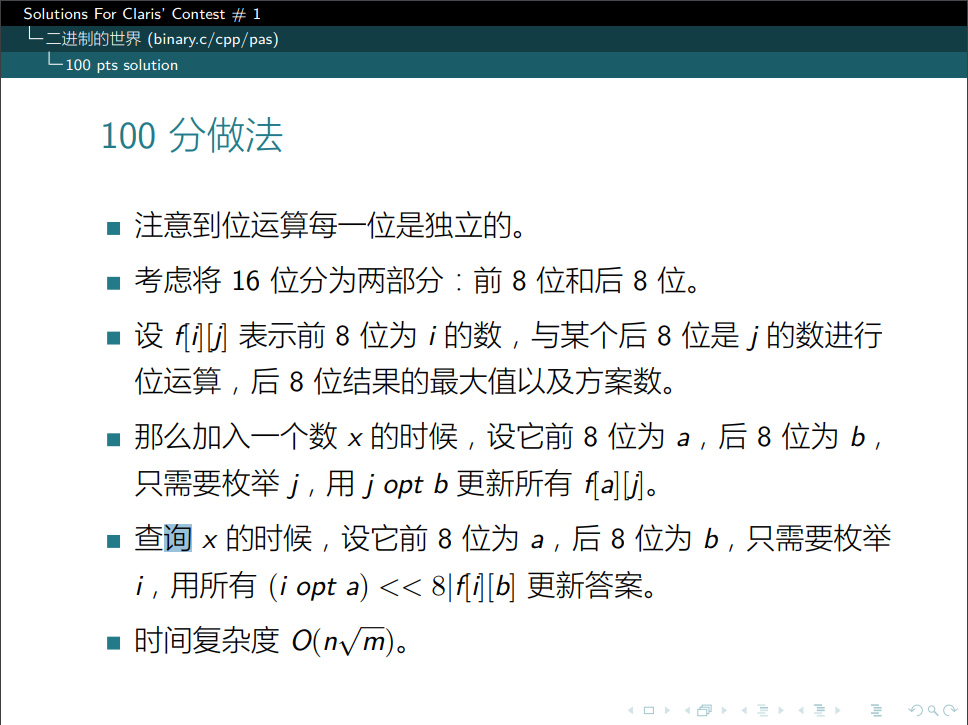description

analysis
\ (DP \) , which is \ (Claris \) immortal title ...?
Since it is \ (2 ^ {16} \) can be split into two \ (2 ^ 8 \) bitwise

- Shining play on the line
code
#include<stdio.h>
#include<string.h>
#include<algorithm>
#define ll long long
#define fo(i,a,b) for (ll i=a;i<=b;++i)
#define fd(i,a,b) for (ll i=a;i>=b;--i)
using namespace std;
ll f[260][260][2];
char opt[10];
ll n,type,ans1,ans2;
inline ll read()
{
ll x=0,f=1;char ch=getchar();
while (ch<'0' || '9'<ch){if (ch=='-')f=-1;ch=getchar();}
while ('0'<=ch && ch<='9')x=x*10+ch-'0',ch=getchar();
return x*f;
}
int main()
{
freopen("binary.in","r",stdin);
freopen("binary.out","w",stdout);
n=read(),scanf("%s",&opt),type=read();
fo(j,1,n)
{
ll tmp=read(),x=tmp/256,y=tmp%256;
if (j>1)
{
ans1=ans2=0;
fo(i,0,255)
{
if (!f[i][y][1])continue;
ll z;
if (opt[0]=='a')z=i&x;
else if (opt[0]=='o')z=i|x;
else z=i^x;
ll tot=(z<<8)+f[i][y][0];
if (tot>ans1)ans1=tot,ans2=f[i][y][1];
else if (tot==ans1)ans2+=f[i][y][1];
}
printf("%lld",ans1);
if (type)printf(" %lld",ans2);
printf("\n");
}
fo(i,0,255)
{
ll z;
if (opt[0]=='a')z=i&y;
else if (opt[0]=='o')z=i|y;
else z=i^y;
if (z>f[x][i][0])f[x][i][0]=z,f[x][i][1]=1;
else if (z==f[x][i][0])++f[x][i][1];
}
}
return 0;
}